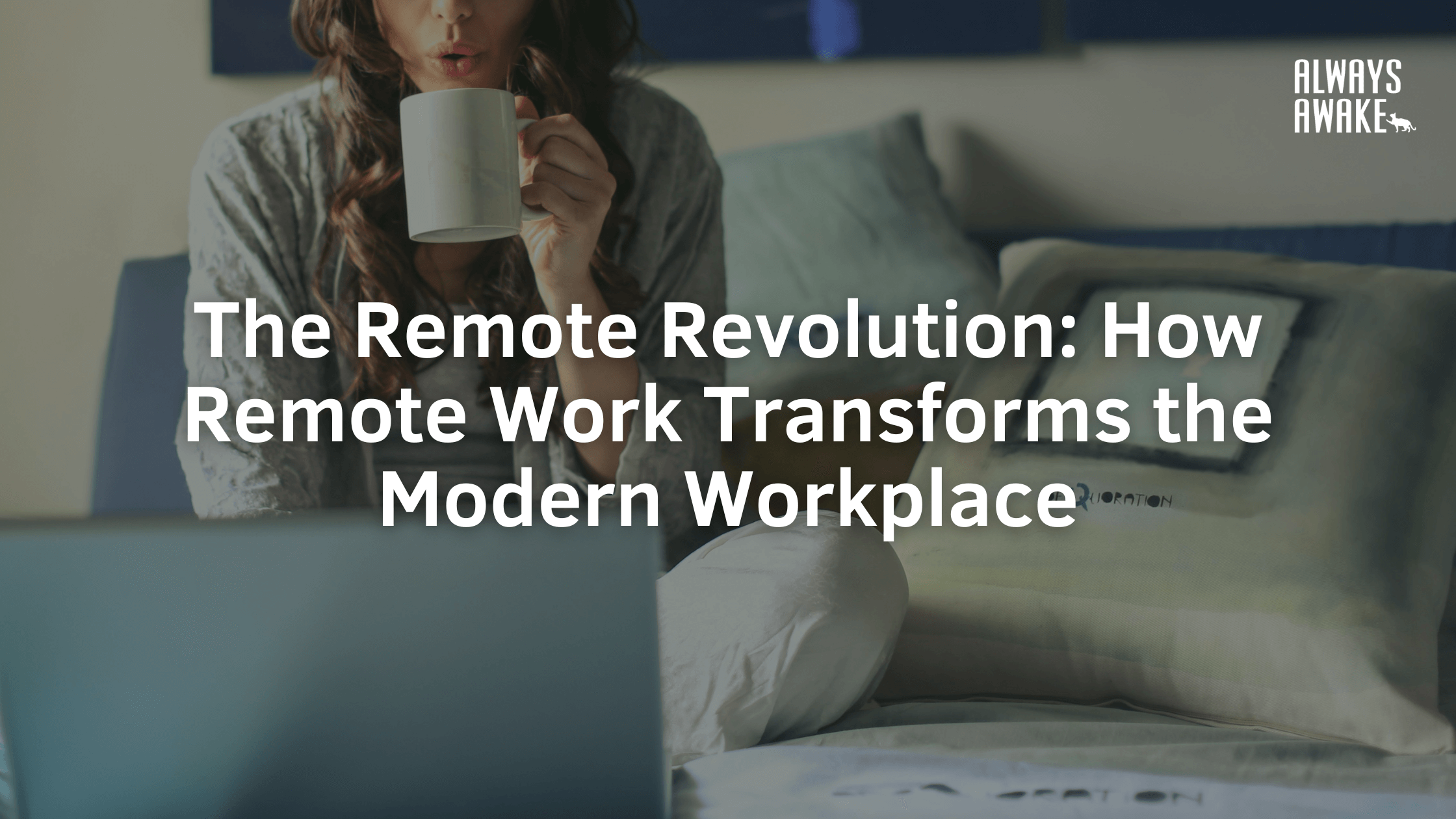
The Remote Revolution: How Remote Work Transforms the Modern Workplace
The professional scene has seen a significant transformation. Fueled by technological advancements, a changing workforce, and the global pandemic, remote work has transformed from a perk for a lucky few to a cornerstone of the modern workplace. As organizations adapt to this “new normal,” remote work transformation becomes a crucial element of broader digital transformation initiatives. Let’s explore how remote work is shaping the future of work.
From Perk to Standard: Advancements in communication technology, shifting demographics, and the need for business continuity propelled remote work into the spotlight. For many, what began as a temporary fix has turned into a permanent answer, drastically altering the way we operate.
Technology Drives Transformation: Central to this transformation is the technological ecosystem enabling seamless collaboration across distances. Video conferencing platforms, project management tools, and a host of digital solutions bridge the gap between remote employees and empower efficient work practices.
Flexibility Takes Center Stage: The remote work revolution fosters flexible work arrangements, allowing employees to design schedules that maximize productivity and personal well-being. This newfound flexibility in location and hours translates to happier, more engaged employees, leading to improved retention and work-life balance.
Challenges and Solutions: Despite its benefits, remote work presents challenges. Cybersecurity, data protection, employee well-being, and fostering a sense of community require proactive solutions. For these worries to be reduced, strict laws, comprehensive training initiatives, and reliable technological protections are necessary.
Culture Redefined: Traditional corporate culture needs to be reevaluated in light of remote work. Building a strong sense of culture and belonging across geographies and time zones becomes paramount. To make sure that remote workers feel appreciated and engaged, leaders must foster an environment of trust, openness, and inclusivity.
The Workplace Without Walls: Remote work redefines the workplace, transcending physical boundaries. Organizations can now access a global talent pool, tapping into diverse perspectives and skillsets previously limited by geographical constraints.
The Future of Work: In the future, how individuals work will still be impacted by the trend toward remote work. Hybrid models that combine remote and in-person interaction are likely to become the norm as businesses seek the perfect balance between flexibility and face-to-face collaboration. Additionally, advancements in AR and VR technologies hold immense potential to further enhance remote collaboration and build immersive virtual workspaces.
Lessons Learned, Legacy Lives On: While the pandemic may have waned, the widespread adoption of remote work offers valuable lessons. It signifies a profound shift in how companies operate and communicate in the digital age.
Even with a return to physical offices, the knowledge and strategies gained from enabling remote work will continue to inform decision-making for future disruptions. As the landscape of work continues to evolve, remote work transformation will remain a driving force in shaping the professional landscape for years to come.

